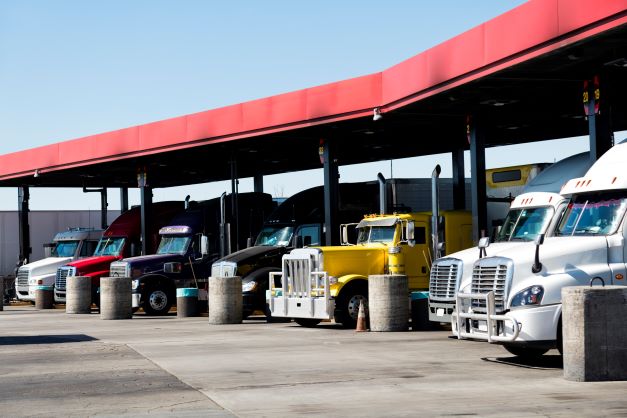This past week brought some great news for truck drivers. After a long period of 11 weeks of increasing prices, the U.S. average retail price of diesel decreased, dropping by .3 cent to $3.285, according to the U.S. Department of Energy’s Energy Information Administration report on June 4.
Why have prices been going up?
Because most diesel is made from crude oil, the single greatest factor in the price of diesel is the price of crude. This is not surprising as, according to the Energy Information Administration (EIA), about 57 percent of the cost of providing gasoline to consumers comes from the price of crude. Since oil is a globally traded commodity, understanding oil prices requires a look at global supply and demand. Not surprisingly, there has been a collective rise in the global demand for oil – especially with the strong U.S. economy and the upcoming summer driving season.

How do we deal with it?
While diesel prices may have slightly leveled off, many carriers said that they are still taking steps to reduce consumption and save money.
“Estes is always highly focused on fuel prices since they’re a major cost-driver and represent a significant percentage of the company’s overall expenses,” William Hupp, Estes Express Lines Chief Operating Officer, said in a statement to Transport Topics. “So, whether prices are high or low, fuel efficiency is always a priority for us. We continually work to offset these costs by investing in more modern vehicles for our fleet, as well as emphasizing efficient driving techniques for our drivers.”
Other carriers expressed their goals for moving towards alternative fuels if diesel prices remain high or continue to rise.
“NFI is continuously implementing numerous best practices to help mitigate rising fuel costs,” Bill Bliem, NFI Industries’ Senior Vice President of Fleet Services, said. “These range from enhanced driver training, outfitting our tractors and trailers with the latest technology to make them more fuel-efficient and aerodynamic, as well as further exploring vehicles that operate on alternative energy like electric and natural gas.”
Regardless of which way the prices go in the future, there are many strategies in place to not only reduce spending, but to reduce waste which is an up and coming trend in the trucking industry.
Sources:
https://www.ttnews.com/articles/10-week-streak-rising-diesel-prices-ends-3c-drop
Continue Reading the PLS Blog

